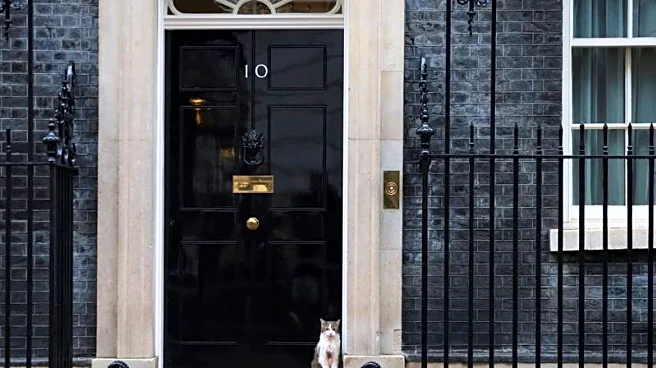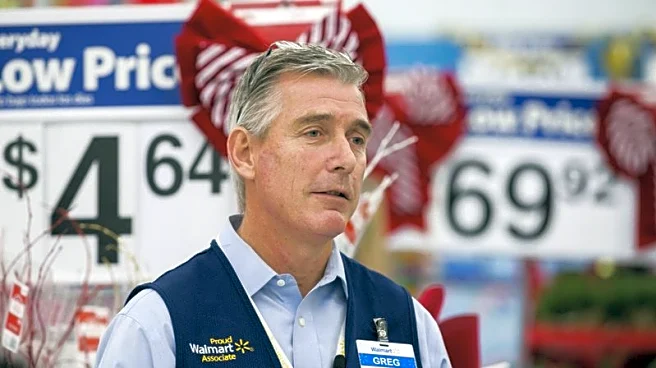What's Happening?
Chris Jones, a retired University of Iowa researcher and author, is considering a run for Iowa Secretary of Agriculture. Jones, a Democrat, has formed an exploratory committee to raise funds for a potential campaign, with a decision expected in January.
He is known for his work on water quality issues and his book, The Swine Republic, which addresses agricultural pollution. Jones is critical of the current political approach to environmental issues in Iowa, particularly concerning water quality and agricultural practices. He advocates for diversifying Iowa's agriculture sector and reducing reliance on ethanol production, which he argues offers limited economic benefits compared to the land used.
Why It's Important?
Jones's potential candidacy is significant as it brings attention to environmental and agricultural issues in Iowa, particularly water quality and pollution. His focus on diversifying agriculture and addressing chemical runoff could influence public policy and spark discussions on sustainable farming practices. If elected, Jones could implement changes that impact Iowa's agricultural landscape, potentially leading to improved environmental outcomes and public health. His campaign may also challenge the status quo, encouraging other candidates to address environmental concerns more aggressively.
What's Next?
Jones will decide in January whether to officially run for office, which could lead to a competitive race for Iowa Secretary of Agriculture. His campaign may attract support from environmental groups and voters concerned about water quality and agricultural sustainability. The current Secretary, Mike Naig, plans to seek re-election, setting the stage for a potentially contentious election focused on environmental and agricultural policies. Stakeholders, including farmers and environmental advocates, will likely engage in discussions and debates on the future of Iowa's agriculture sector.
Beyond the Headlines
Jones's candidacy highlights broader issues of environmental governance and the role of agriculture in public health. It raises questions about the balance between economic interests and environmental sustainability, particularly in states heavily reliant on agriculture. His focus on water quality and chemical runoff may lead to increased awareness and advocacy for stricter regulations and innovative farming practices. The campaign could also influence national discussions on agricultural policy and environmental protection.















